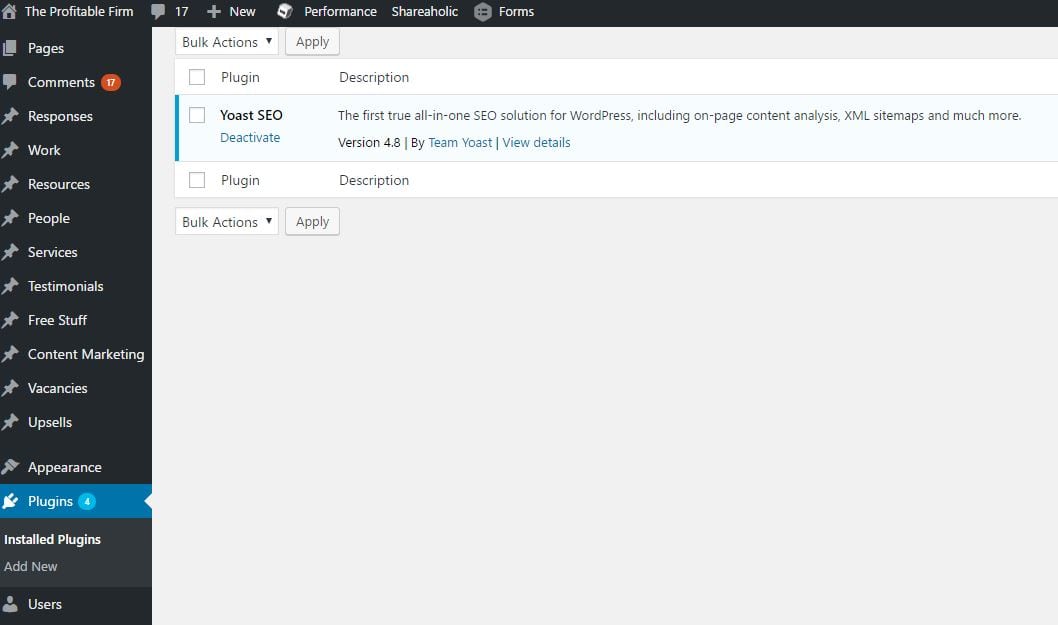 SEO: The 3 letters that many accountants have come to fear!
SEO: The 3 letters that many accountants have come to fear!
Why? Because of all the myths out there surrounding search engine optimisation, you’re constantly thinking it’s anyone’s guess to get it right.
Perhaps you’ve been told by a marketing agency that they can “get you to the top of Google” or you’ve been told you need to spend “£50 a day on Google Ads.” And you’re aware that Google is constantly changing so you’re always wondering if you’re going to get it right!
In reality, it’s far simpler than that, and you can build your search engine optimisation around 3 core elements that you control yourself. And the best bit is these elements will stand the test of time, meaning that by doing this means you are setting up your marketing for success right from the beginning.
Are you ready to have those SEO myths debugged? Good, let’s go!
1. SEO foundations: Is your site readable?
This is all the tech stuff that Google needs to see for them to determine your website is SEO friendly. Without this, Google will think your site has no content whatsoever.
In order for your site to be readable, it needs to have text, meaning a website that is only images with no text will be determined as unreadable by Google. As a result, if you don’t have this foundation in place before you do anything else with your website, the other foundations won’t work as effectively, because the second one is…
2. SEO Metadata: How Google discovers what your site is about
Your metadata is everything Google reads to determine what content is on your webpage, mainly the title and description. For WordPress users, you’ll be familiar with this if you’re using the Yoast plugin.

The idea behind your metadata is to briefly explain the page. Because of this, you want to make sure every page has metadata and that every page is different. Google has never been a fan of duplicate content and so making it unique to every page ensures that your content is visible to your intended audience.
But what do you write for a title and description?
Well, as with the way you market your firm, you can use content that addresses the needs of your target audience. So with your title and description, you should first describe the problem your audience is facing and then the solution that you’re providing. This way, your clients know if your webpage or website is going to address the issues they’re facing before they’ve clicked through.
“But doesn’t that mean fewer people will be visiting my site?”
Perhaps, but in this instance that’s not a bad thing! Because, if you have a visitor who goes to your site and immediately leaves (because in this case the content doesn’t address their issues), Google will look at that and assume your site has bad content. This isn’t what you want, because it will lead to poor rankings for your site and therefore less traffic.
So if you’ve got all that in place, then your website is ready for the final element, and that is…
3. SEO Content: What you actually say to prospective clients
And we’re back to content marketing!
It’s become universally accepted that content marketing is now simply how we do marketing in today’s world, much like cloud accounting is now how the best firms do accounting.
Your target audience is always looking for content that addresses their needs, their pain points and their problems. The more content you share that does this, the more consistently you will rank.
You’ll notice I used the word consistent: that’s because some firms think they can write content on a more ad-hoc basis. Perhaps a few blog posts, then leaving it for 3 months, then writing another, then leaving it for 6 months.
This won’t work as effectively as those who are consistently putting out quality content tailored to your audience. Consistency is key. Whether you’re blogging weekly or three times a week, you want content that answers the questions your audience are asking.
Being specific with your content is crucial. The more specific your content is, the easier it is to rank as there is less competition, which ultimately results in a higher conversion rate.
Bring the 3 SEO elements together for website success
And there you have it. SEO isn’t so mysterious to accountants after all. If you take onboard these 3 elements, your website will be in a much better position to target your audience consistently with high quality content that drives them to you.
So if you’re wondering why your website isn’t ranking the way you think it should, take a look at whether or not your website is setup to be readable and if you have content that your audience is looking for.
If you’ve got templated content, or content but it isn’t regular, you now know you need to take action to create regular and valuable content for your audience!

